One day, I shall come back. Yes, I shall come back. Until then, there must be no regrets, no tears, no anxieties. Just go forward in all your beliefs and prove to me that I am not mistaken in mine.
The Doctor, The Dalek Invasion of Earth
The Doctor: First Doctor (William Hartnell)
The Companions: Susan (Carole Ann Ford), Barbara (Jacqueline Hill), Ian (William Russell)
The plot: The TARDIS arrives on a future Earth in the middle of a Dalek invasion
Written By: Terry Nation
First aired: 21/11/1964-26/12/1964
Continuity: The Daleks are feeling much better now
Susan becomes the first companion to leave the TARDIS
The Daleks’ trademark ‘exterminate’ is established as a catchphrase
The Doctor takes the first step to being the Daleks’ nemesis
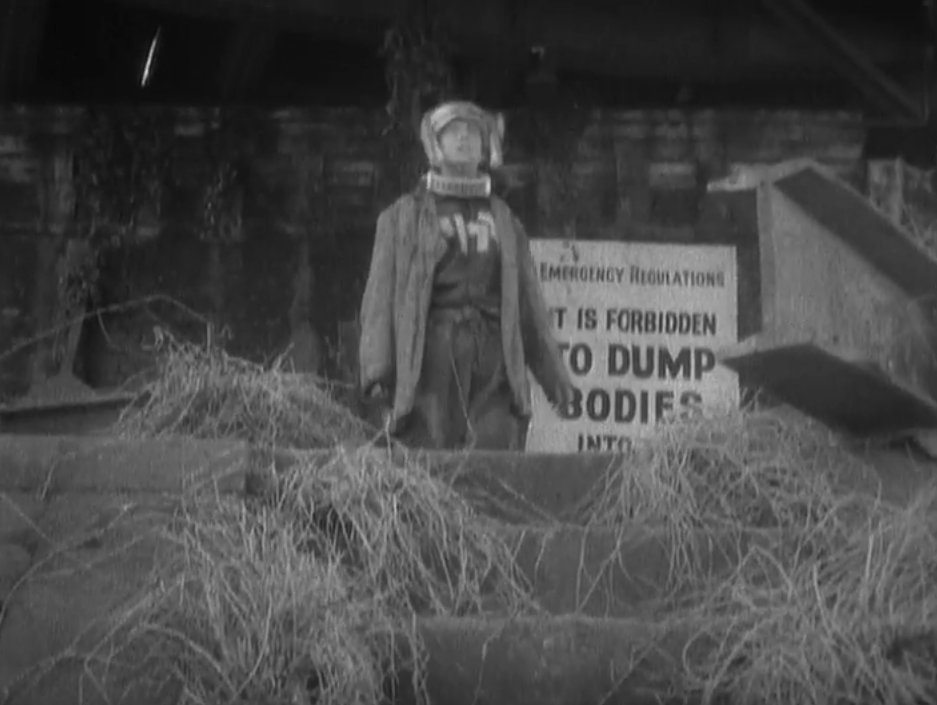
Season 2, episodes 4-9 review
Hey, remember that time the Daleks were miraculously un-genocided and decided to invade Earth so they could hollow it out and drive it around the universe like some kind of souped-up space gourd?
No? Well, then you’re missing out on what is possibly the first big, messy, nonsensical serial of Doctor Who. When you think of what the show is now, all its quirks and idiosyncrasies, you can arguably trace that back to this storyline at the end of 1964.
The return of a much-loved enemy, the departure of a companion, a slapdash approach to continuity and a plotline that doesn’t make a great deal of sense. These elements are what define modern Who 60 years later, even more than the Doctor stepping up to be an heroic character who no longer walks past injustice.
Independent of anything else, The Dalek Invasion of Earth is a seriously important serial of Doctor Who. It’s also very serious in terms of its theme and tone. Nation does love a good old clash of civilisations and The Dalek Invasion of Earth has all of the colonial war overtones you could ask for. The Daleks have invaded Earth to quite literally gut it for the good of their empire and all the best efforts of the technologically-inferior locals are in vain.
The issue with the serial mostly is that the whole thing doesn’t quite stack up and so it’s hard to know when you’re supposed to take it very very seriously – both as a story about genocide and as a story that is so influential to the series as a whole – and where you’re supposed to just enjoy how silly it is. Terry Nation lets his metaphor get away from him and not for the first or last time.
Riding the wave that was 1960s Dalekmania in Britain, Nation was commissioned to bring the Doctor’s first enemy back and bring them back he did; positioning them as a direct threat to humanity and setting up their lifelong enmity with the Doctor.
How are the Daleks here when they were wiped out on Skaro? Apart from a vague handwave to continuity, the characters (and us) are expected to simply accept and move on. The Doctor tries to tell us these Daleks are from ‘million of years’ before the final solution on Skaro (even if the Neutronic Wars were the reason they became Daleks in the first place). No longer bound to their city and millennia before the radiogenic crisis that caused them to develop their metal bodies in the first place. It doesn’t bear up to scrutiny but it is what it is. The Daleks are here.
They can appear from the water, tackle off-road terrain but still can’t navigate stairs. No longer limited to two wheel drive, they have a multi-purpose vehicle that could pop up from anywhere as long as it’s not the second floor. It’s lucky they have human slaves to do that work for them.
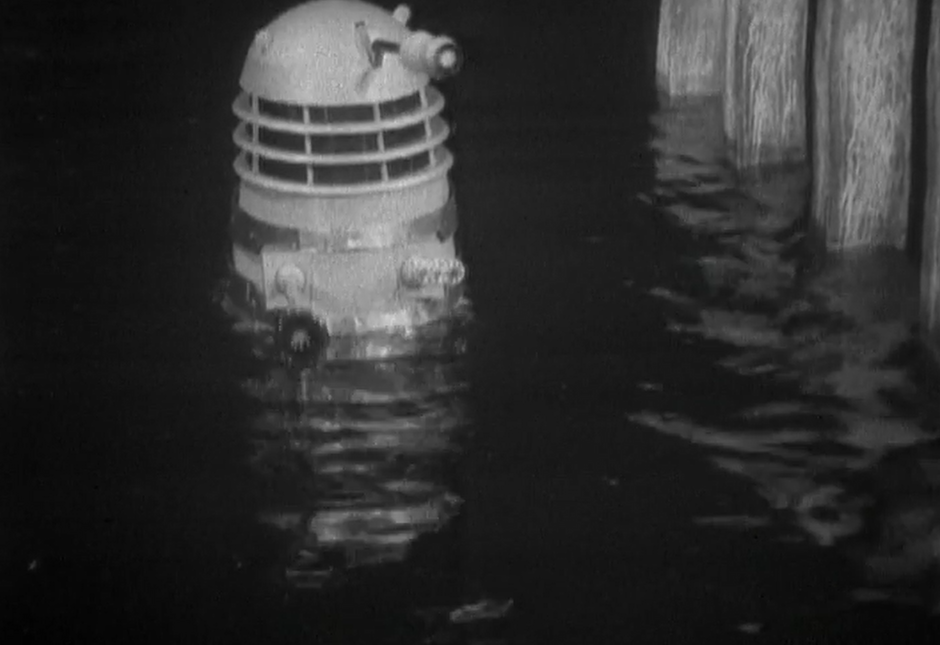
For a serial that dives eventually into absurdity, The Dalek Invasion of Earth has an exceptionally good first episode. From an evocative first scene, the tension builds till the reveal at the end. After landing in 22nd century Earth (2164 to be precise), the TARDIS crew is separated from each other and from the ship quite quickly. As usual, the way in which the group is separated is clumsy and involves Susan being… Susan (at least it’s not Barbara’s weak female ankles that give out this week). But they are nonetheless separated. The Doctor and Ian are captured by the Daleks while Susan and Barbara are taken to safety by the Resistance.
The first episode is full of iconic and evocative imagery. The Daleks rise out of the Thames; enslaved humans with control mechanisms on their heads lurch through the street like zombies; and a chilling sign extorting people not to dump bodies in the river is an ominous backdrop. The flying saucer above London is a comparatively kitschy image for a modern viewer but the empty streets and abnormal silence work to convey a feeling of disquiet. They’re in their home town of London but something is very very wrong.
The serial’s very first scene is one of Nation’s finest. A human with a control mechanism staggers past the aforementioned sign to dump himself in the river. The episode’s cliffhanger then has the Dalek come out of the same spot, rising from the death of humanity. Humans fall, Daleks ascend.
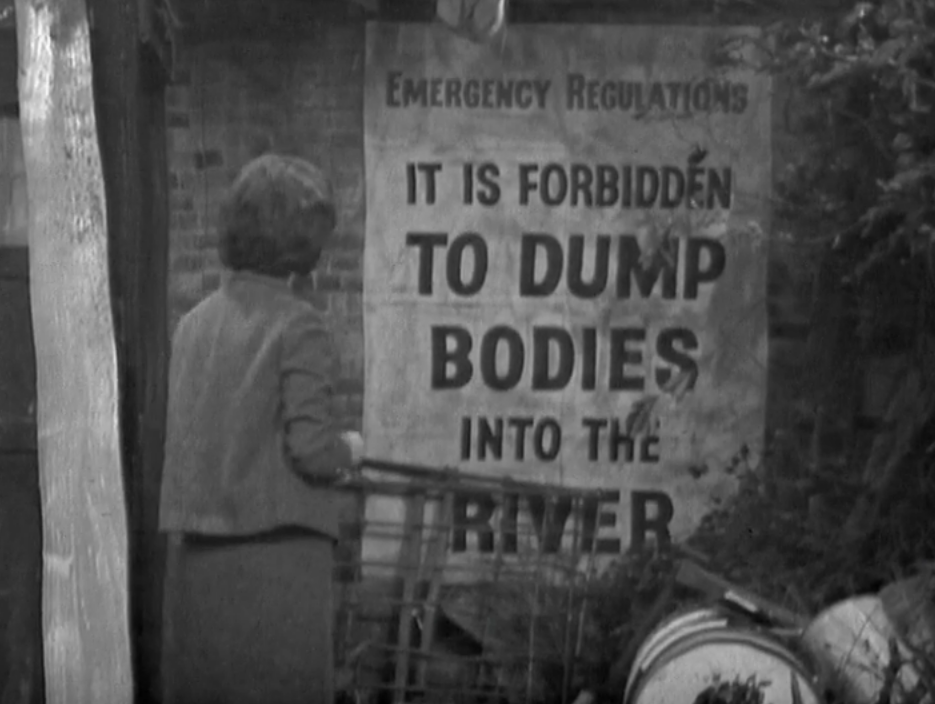
But while the sign is the product of the earlier plague that preceded the war, it takes on a new meaning with the suicide of the Roboman in the first scene. A final desperate act of self-determination, the only resistance left to him. And forbidden.
In fact resistance is a major theme of The Dalek Invasion of Earth. Nation conceived both the Thals and the Dals in the original piece The Daleks as reflections of Nazism and this serial is also grounded very much in the events of a second world war that didn’t end all that long ago. The London blitz was a scarring wound on the British psyche in much the same way as 911 was to Americans over 50 years later. And so while The Daleks was a reflection of the Cold War and Cuban missile crisis in the shadow of genocide, The Dalek Invasion of Earth is the heart of a nation under siege. Resistance fighters in the tunnels listen to propaganda broadcasts and scheme how to fight back while an enemy drops projectiles from the sky and eventually invade.
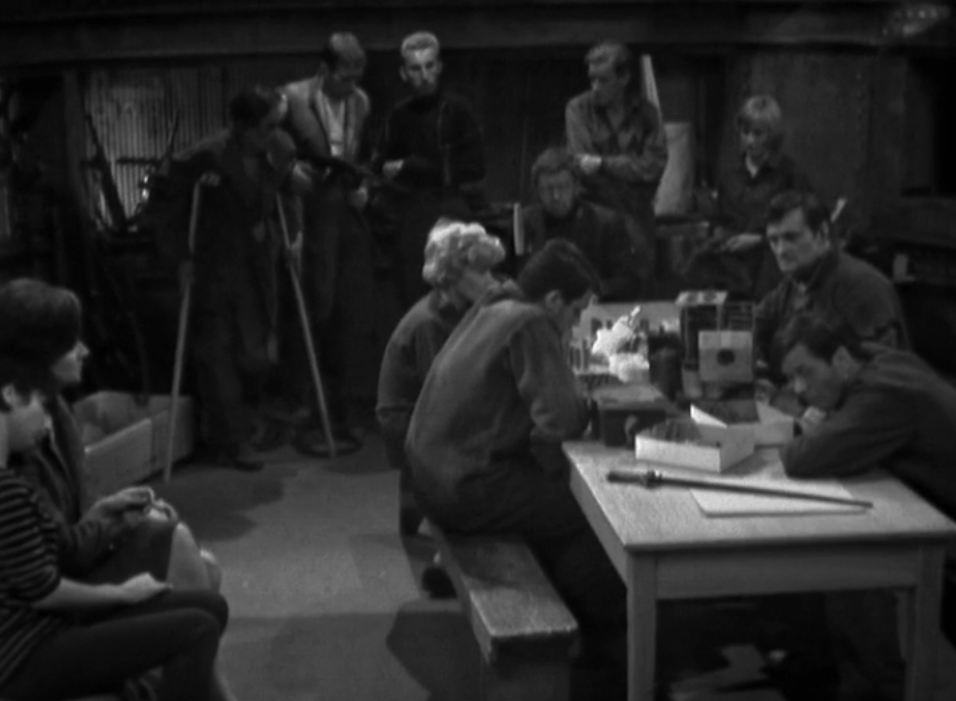
While Nation later expands this idea out to other colonial wars, such as the American Frontier Wars, his first few episodes are clearly inspired once again by World War II and especially The Blitz. Susan and Barbara quickly join the resistance, which has a plan to attack the Daleks. They’re led by wheelchair-bound scientist, Dortmun who has invented a bomb that he believes will destroy a Dalek’s outer casing.
The resistance is planning a frontal attack against the Dalek’s saucer station. It takes Barbara about a minute to improve their plan and they set out, preparing to use infiltration to get close to the saucer and then free the prisoners and escape.
The Doctor and Ian, meanwhile, find themselves captured by Daleks and their Robomen slaves. And despite the Daleks’ insistence that they are the masters of Earth, the Doctor obstinately refuses to concede.
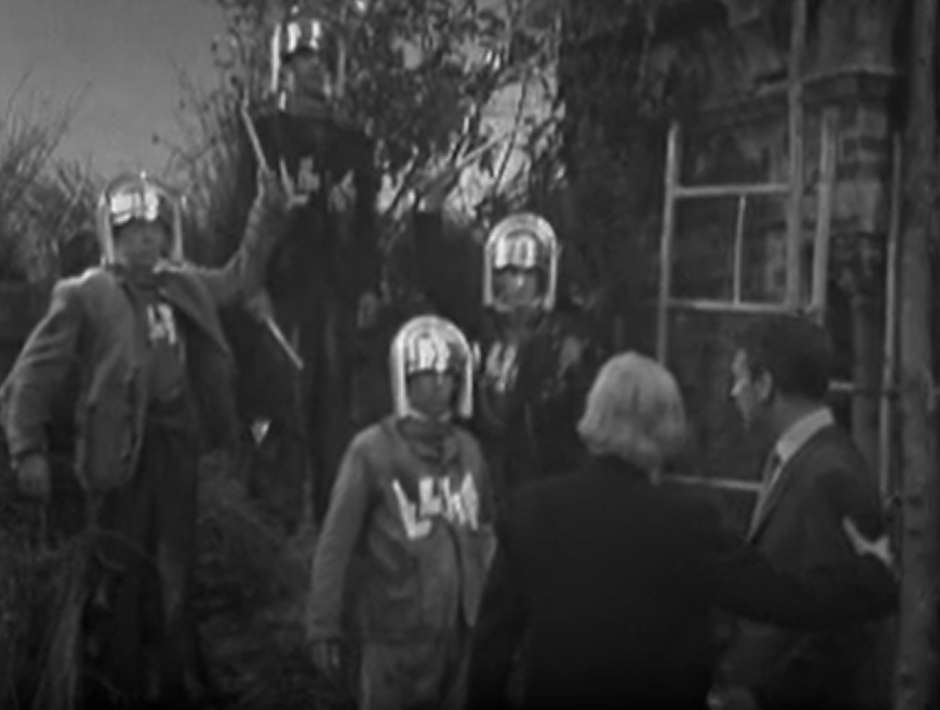
The Dalek Invasion of Earth is not the first hint that the man we met in Doctor Who’s initial season is no longer willing to stand by idly in the face of injustice (he did not hesitate in the previous Planet of Giants to help stop the production of a dangerously persistent pesticide). But it is the first scene of his open defiance against what he sees as bullying. While he is still a slave to his own curiosity (and to the reserved detachment redolent of the Victorian gentleman scholar he’s modelled after), he is no longer willing to stand apart from events.
Faced with an enemy he knows to be implacable and homicidal – if not in fact genocidal – he does not snicker or giggle as he would in the past. Nor does he advocate running away. He instead stands toe to toe with the invaders and lets them know that resistance is not futile (to coin a phrase). It is instead the point.
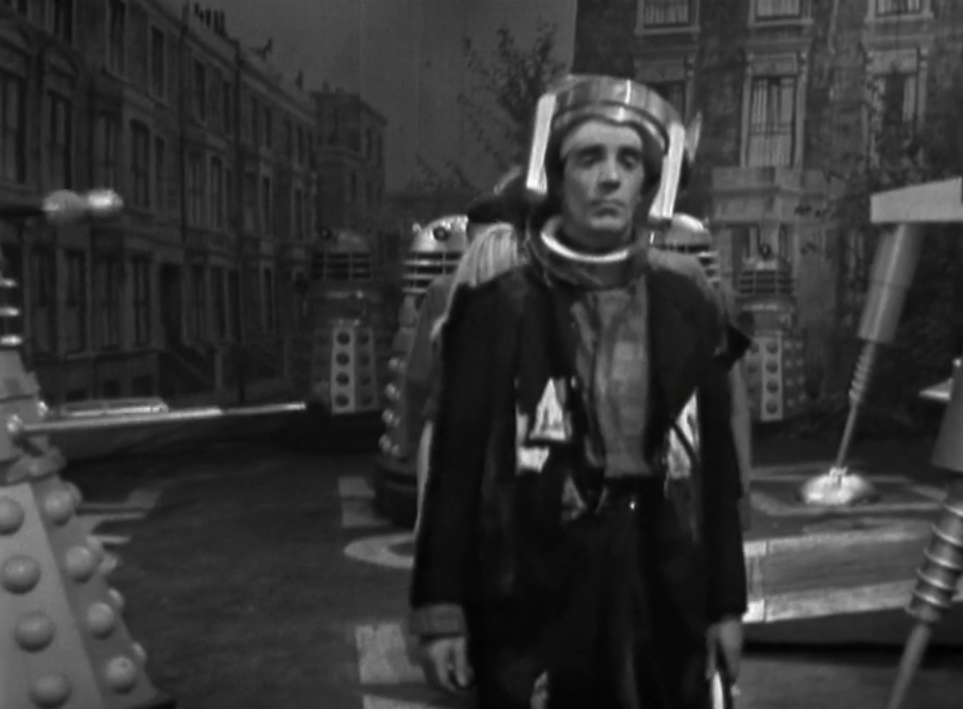
The Resistance launches their attack against the saucer bay but Dortmum’s new bombs don’t work and their forces are annihilated. It is, however, the distraction that allows Ian and the Doctor to escape. Barbara finally ditches her millstone, Susan, to be the bomb-wielding badass in sensible shoes we always knew she was. Separated and decimated, the remnants of the Resistance decide to move away from a London the Daleks are about to firebomb while Susan and rebel, David, head off together.
The split gives Susan some time to spend with David who embodies the fight instinct to contrast with Susan’s flight. They say that running away becomes a habit and Susan and her grandfather were already running away when we met them. Even now, Susan simply wants to do what she has done in every adventure since we met her – find her friends and leave. But in David she finds someone who has a home and is prepared to risk all to defend it.
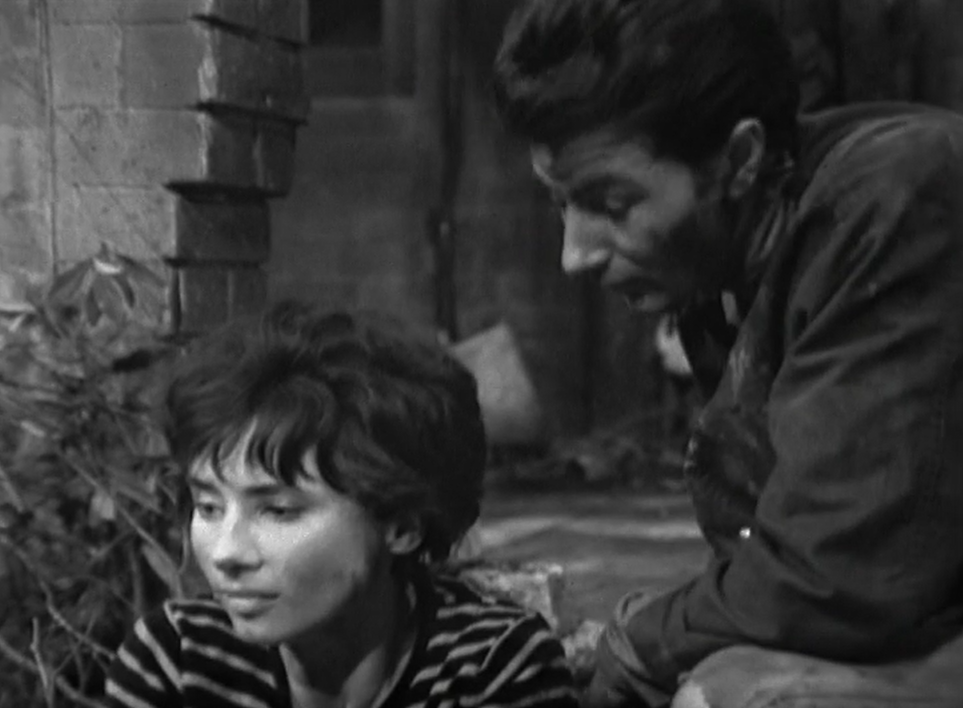
Susan: I never felt there was any time or place that I belonged to. I’ve never had any real identity.
The Dalek Invasion of Earth
David: One day you will. There will come a time when you’re forced to stop travelling, and you’ll arrive somewhere.
Susan and David are soon reunited with the Doctor who thinks they should make their way back to the TARDIS. With David’s words still ringing in her ears, Susan remonstrates with him about running away versus staying and fighting. Her rebellion sparks the controlling and paternalistic side that told her in the first episode of this serial that she “needed a smacked bottom”. It also plays nicely into the dynamic established in The Sensorites: that Susan is growing up and ready to start her own life away from her grandfather and the constant travelling. The Doctor’s treatment of her at this point is bordering on abusive (she’s at least 17 years old, if not older) and it is simply time she left and forged her own path. It’s no wonder that she later responds positively to David’s dream of rebuilding the Earth from scratch.
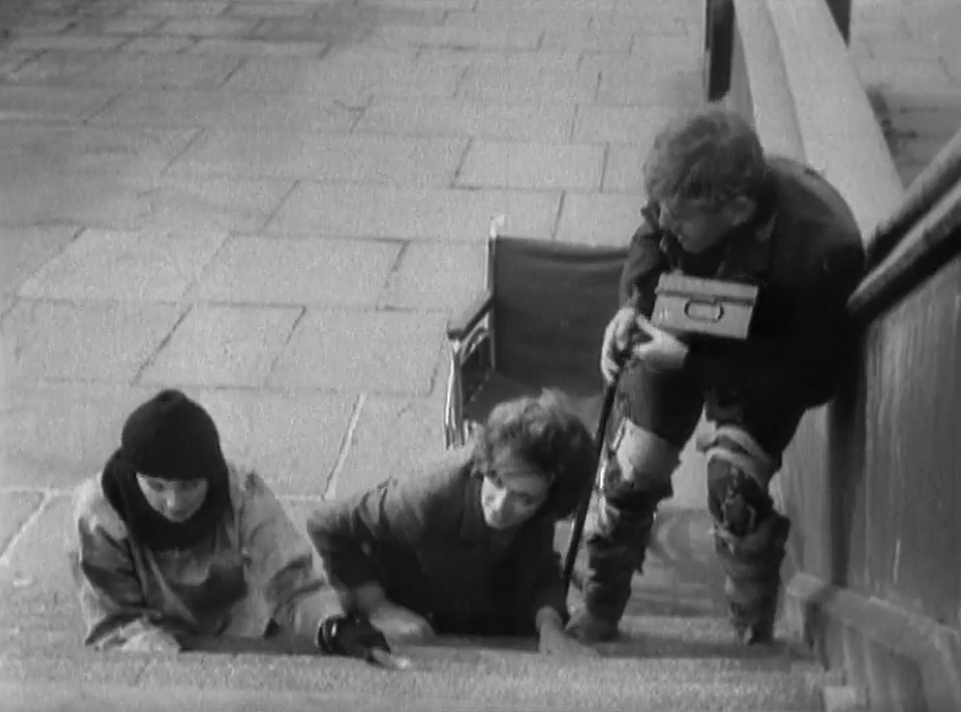
Meanwhile, Barbara and resistance fighter, Jenny, wheel Dortmun through the streets to their rendezvous point where he begins again working on his bomb. By putting Dortmun in a wheelchair, Nation has created a resistance leader who is a reflection of the Daleks themselves. A cerebral being reliant on technology to live and move. Nation is clearly no Luddite who believes that scientific knowledge can be judged by the worst to wield it. Our heroes and villains are scientists. And by making Dortmun a victim of what is probably polio, Nation is saying clearly that science will save us as much – if not more – than it will doom us.
As far as iconic scenes go, Doctor Who gives us its first location shots around London as the Daleks visit all the tourist traps – Westminster Bridge, the Houses of Parliament, Whitehall and Trafalgar Square. Add in London Bridge and the British Museum and it’s a solid couple of days of touristing. Shame that it’s all about to be firebombed.
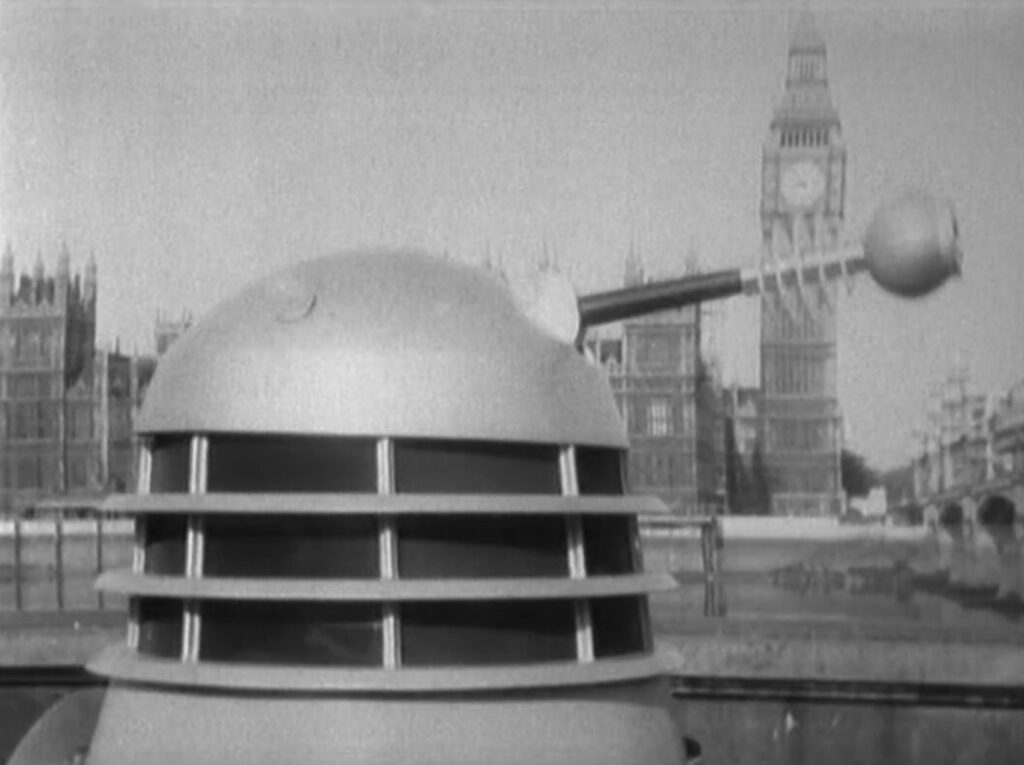
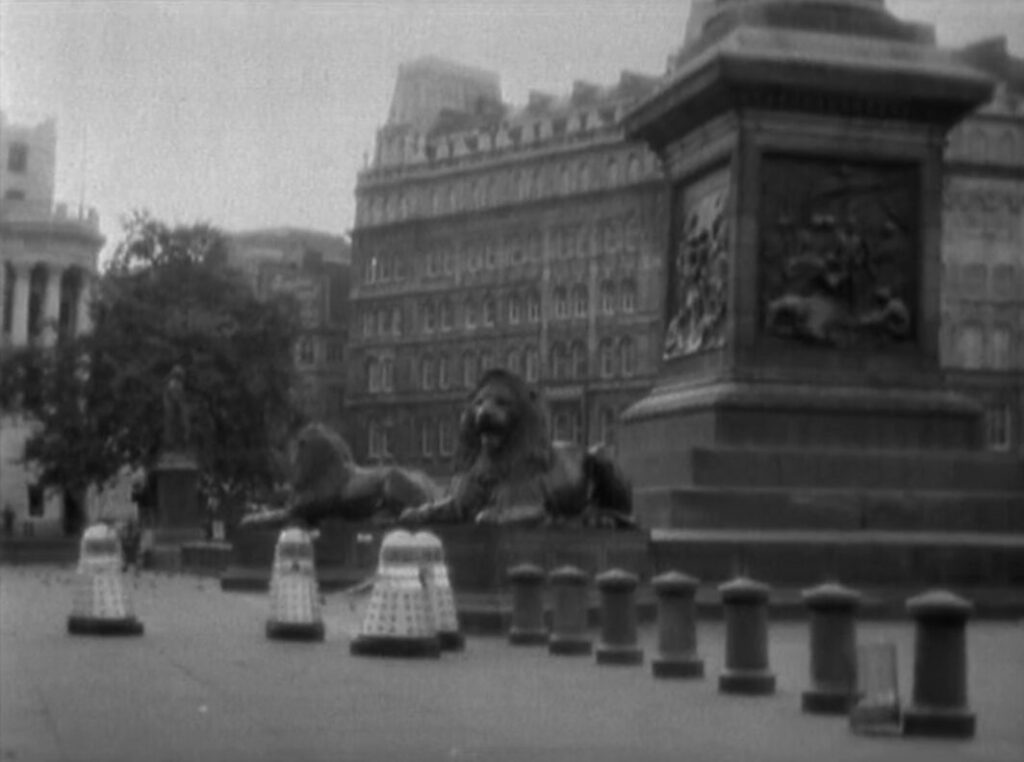

Dortmun hands Barbara the notes for his bomb for her to give to the Doctor. He wants to make sure his work goes to another scientists. Then he secretly sneaks out to test his bomb on a Dalek. It does not work and he is exterminated.
Barbara: If Dortmun hadn’t thrown his life away, we would all be dead. He knew exactly what he was doing. He sacrificed himself so that you and I would have a chance
The Dalek Invasion of Earth
Barbara and Jenny get some transport working and head off to the Dalek’s mine in Bedfordshire but not before Barbara mows down a cordon of Daleks like bowling pins. This means that all three groups – Susan, David and the Doctor; Barbara and Jenny; and Ian and a resistance fighter he’s joined up with, Larry – are now all headed to the same place. Larry speculates the Daleks are after the magnetic core of earth. It’s the same conclusion the Doctor has come to as well. Although why the Daleks would bother to invade a populated planet to dig out an iron nickel core when they could do it on a plethora of other planets without resistance eludes me – there’s three more in our solar system alone.
Ian and Larry make it to Bedfordshire and Ian tracks down the requisite black market war profiteer to ironically try to get back to London. And then for some reason, Nation spends far too much time on monster hijinks with Ian fighting off some kind of monster called a Slyther while Susan fights off alligators in the sewers. It’s not as bad as spending an entire episode jumping over a ravine but it’s pretty close.
Ian and Larry end up at the bottom of the Dalek’s Bedfordshire mining operation around the same time that Barbara and Jenny are captured and put to work in the same mine. Before they can be reunited, Barbara uses Dortmun’s notes to bargain her way into a meeting with the Black (Supreme Controller) Dalek.
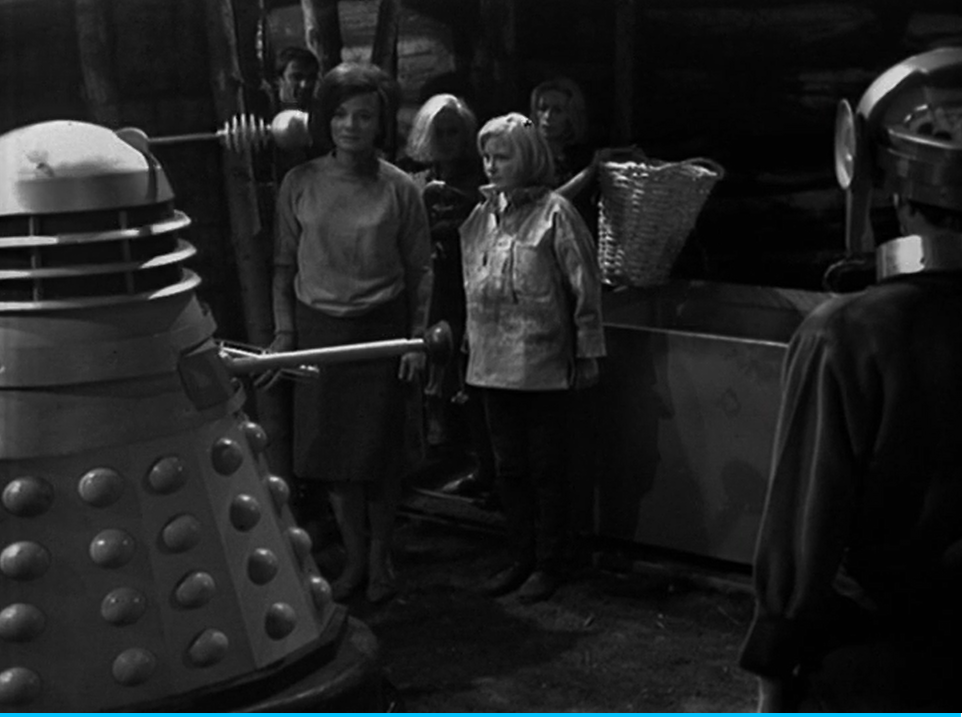
Ian somehow makes it out of the mine and into a shaft with a capsule carrying an explosive. The Daleks plan to use it to break open the fissure and drain the Earth’s molten core.
“Once the core is removed, we can replace it with a power system that will enable us to pilot the planet anywhere in the universe,” exposits the Black Dalek for our benefit. I said at the beginning of this piece that Nation has let his metaphor get away from him and this is about the point at which it happens.
As colonial aggressors, the Daleks are here to quite literally strip the planet of its resources and repurpose it for the expansion of their empire. In doing so, they have killed and enslaved a workforce they see as expendable. But as plans go, this one is so completely bananas that it throws you out of the story. The Daleks already have ships, why do you they need a planet? And why this planet of all of those in the universe? Wouldn’t removing a whole planet from orbit and then flying it around have some unfortunate repercussions for orbital mechanics? Am I being annoying and pedantic for even asking these questions?
Anyway, annoyingly pedantic questions aside, Ian decides the capsule would be a great hiding place and so when it is sealed, he is quite literally inside a bomb heading for the Earth’s core.
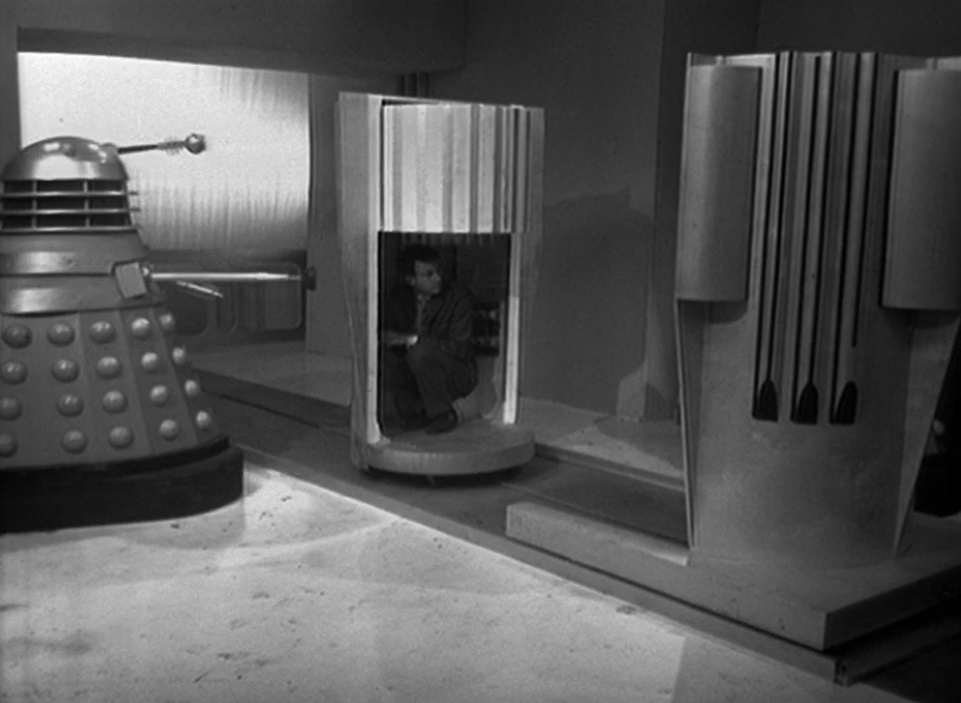
This does give him the chance to deactivate it from the inside. It doesn’t stymie the Dalek’s plans too much though and soon Ian is trapped at the bottom of a shaft while the Daleks repair their explosive. They also give the order to finish exterminating the human workforce. And now, Nation throws in a clear Nazi parallel for the final episode, just to drive his point home.
The final solution! Clear up this planet!
The Daleks, The Dalek Invasion of Earth
The Daleks give orders to the Robomen to round up the workforce and Barbara gets an idea. If they can get to the control panel, they can give the Robomen the order to attack the Daleks instead. Then Barbara distracts them with an hilarious mashup of various historical references from the American Frontier Wars to the American Revolution and even Hannibal’s crossing of the Alps during the Second Punic War while she makes her way to the control panel and attempts to give the Robomen new orders. She makes a grossly racist reference to Red Indians in doing so, which grates on the modern ear. It’s not the first time that Doctor Who became suddenly and unexpectedly racist but it’s one of the more jarring.
Barbara fails and the Daleks… do not exterminate her and Jenny but, for some reason, Bond villain them. After explaining their entire plan, they then tie the two up and leave.
The Doctor and his little gang of rebels, including a granddaughter who’s been doing some cross-country flirting with David, arrive at the mine. The Doctor and resistance fighter, Tyler, go down the mine and arrive in time to release Barbara and Jenny from their restraints. Susan and David head around the lip of the crater to do… something… involving cables that the Doctor hopes might immobilise the Daleks.
This cable thing… works? And the last thing the Black Dalek sees before he is immobilised is the Doctor’s face. Which is convenient because, until this point, literally everyone else has done something to fight the Daleks except the Doctor and his interactions with them have been minimal. Just exactly why they’re about to build a time machine and chase him through time and space is a bit of a mystery.
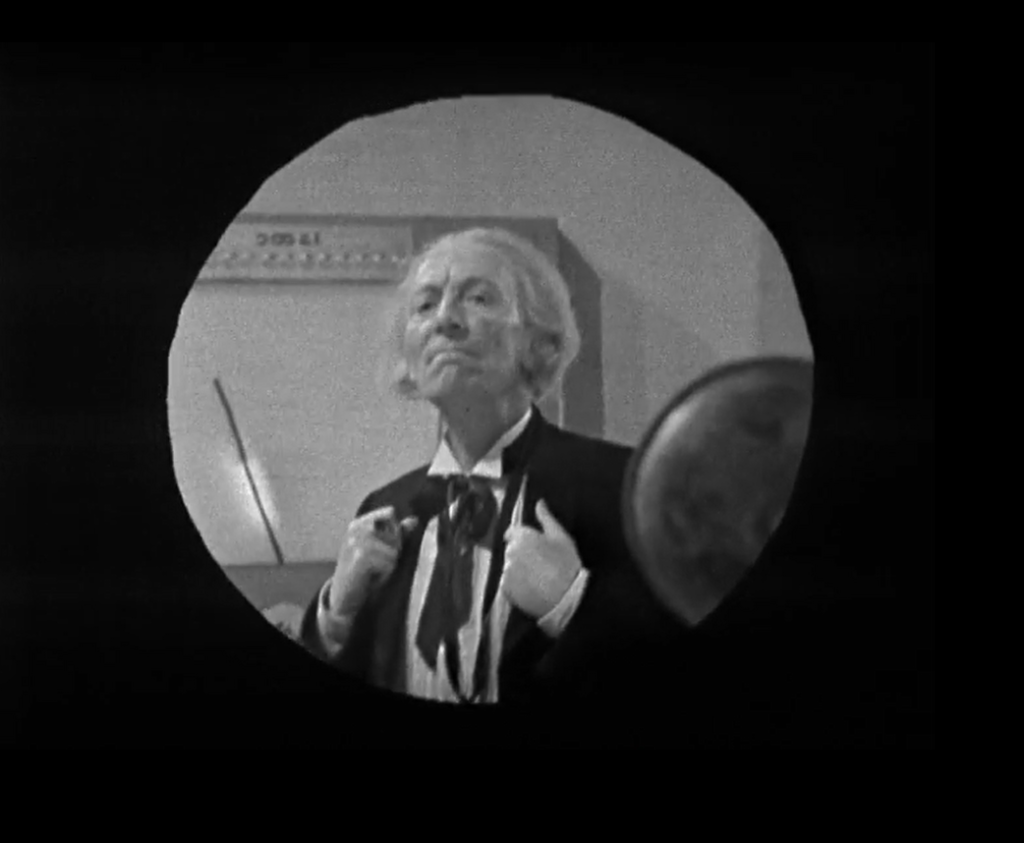
With the Daleks immobilised through the magic of cable cutting, Barbara implements her plan to have the Robomen turn on the Daleks. And Vive la révolution! The Daleks are defeated and the humans are free. The bomb still goes off but with it jammed in the wrong position by Ian, it merely destroys the Dalek’s mine. World War D is over.
As Big Ben chimes and Tyler oversees the work to dig the TARDIS out so our little gang can leave, Susan is faced with a dilemma. To leave with her Grandfather or to stay and rebuild the Earth with new love, David. The decision to stay should have been her first great spurt of character growth, the first step into adulthood. The beginning of her new life in the beginning of a brand new world on planet Earth.
Instead, her grandfather – for whom the words paternalistic and controlling seem at this point to be understatements – makes the decision for her by locking her out of the TARDIS and leaving her behind.
And while he delivers one of the most iconic monologues in Doctor Who history while doing it – his soaring “One day, I shall come back,” speech – it doesn’t change how he controlled and infantilised his granddaughter till the end. While Susan will go down in history as one of the most annoying companions to grace our screen, and while Carole Ann Ford was glad to leave the show as much as we were glad to see her go, the character did deserve better. Introduced as a brilliant unearthly child with telepathic skills and a keen mind, she became nothing more than a screeching infant who ended the show being handed – without her consent – from one man to another.
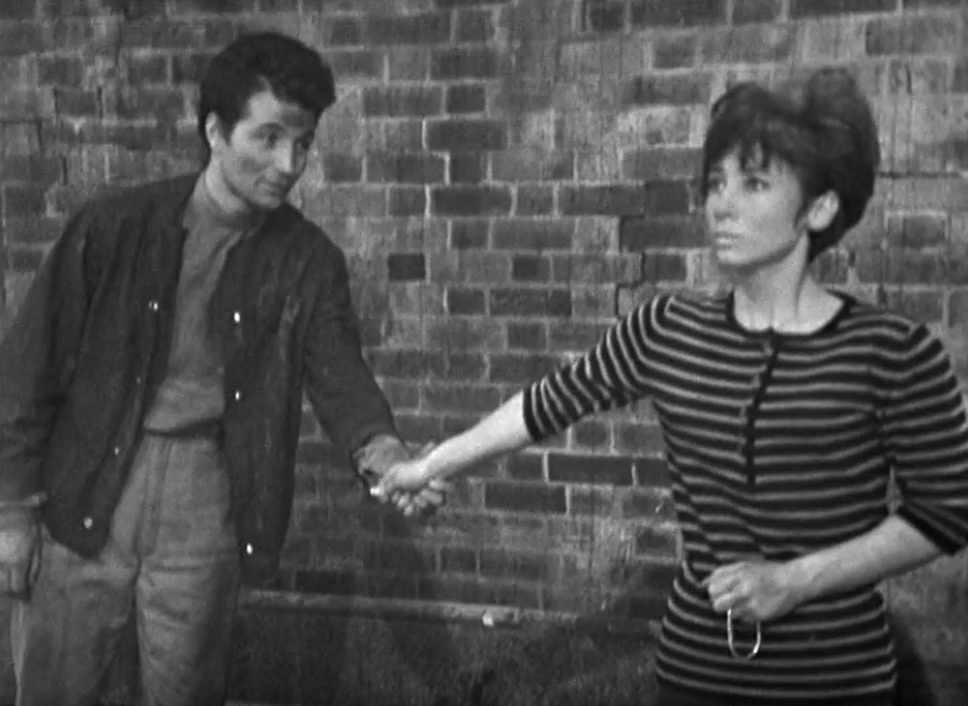
As she trails off listlessly after David, we are left with the sad hindsight that her grandfather did not, in fact, come back. And she was denied any agency as a person till the very end.
Sidenote 1: While the Daleks have a number of murderous utterings throughout this serial, by the end Nation seems to have settled on ‘Exterminate’ and it will soon become their most famous catchphrase.
Sidenote 2: Throughout the Dalek Invasion of Earth, there are strange VETOED signs scattered in random place. While there is much speculation as to the reason for these signs – both textually and metatextually – nobody has said for sure. They’re a small mystery tucked away for us to muse over even today.
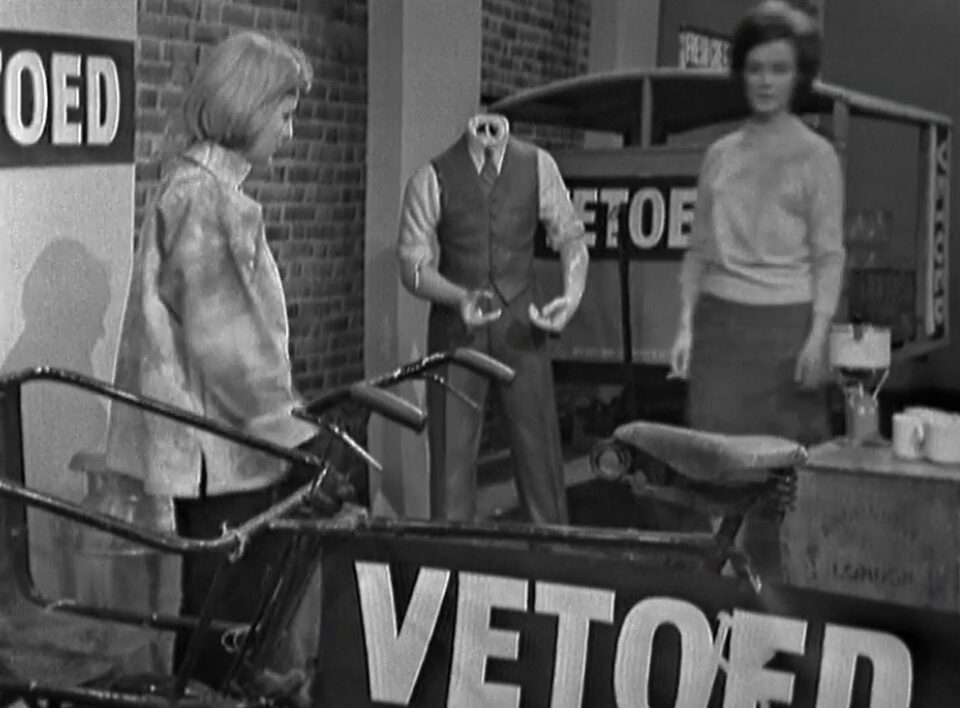
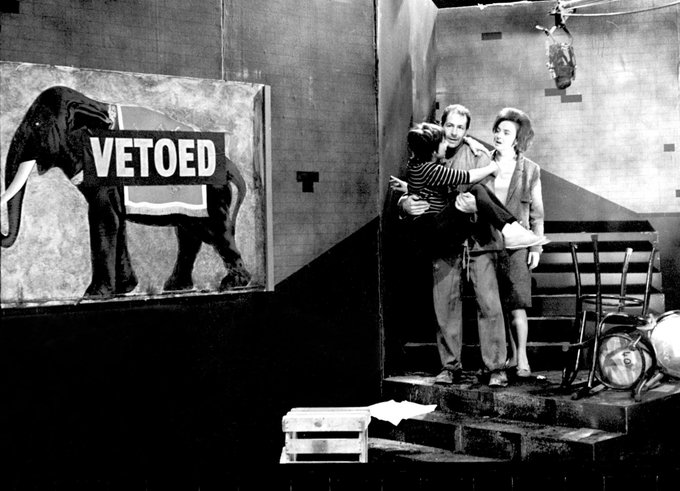

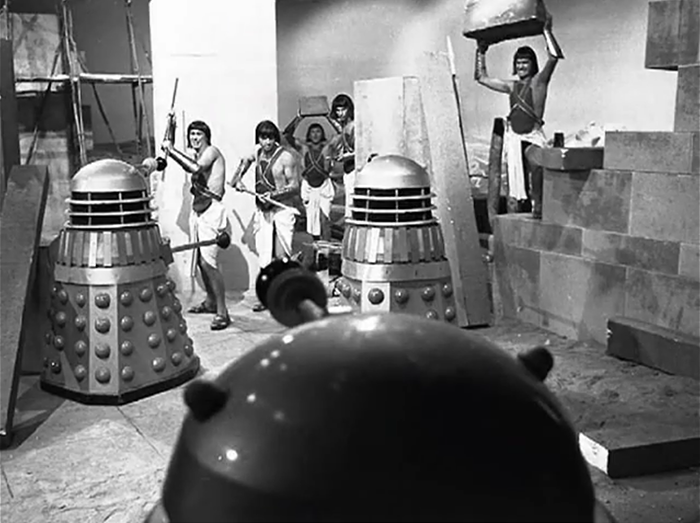
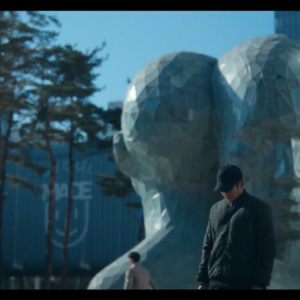
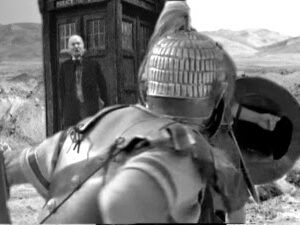
I’ve never seen the original series, but I keep reading these reviews…I’m on the slippery road to pressing play, I think.
Joinnnn ussss